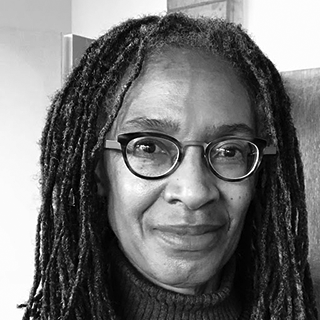Slippage, a Provocation
To call oneself African (here) means, simply, the rejection of a view of self as mired in double consciousness. It is to imagine (or know—or avow, finally) one’s consciousness as that of the African’s untainted by the European encounter.
* * *
Think back, say 180 years: The slip, slippage … of thinking as someone free (thinking one’s self free to think, to be) and the cruel knock of the master or mistress insisting that you are object, abject … that what has slipped from your unguarded thoughts is aberration and must be nullified swiftly, permanently
You have been made to know at all costs—short of a kind of useless dysfunction—that yours is not to think, muse, contemplate. Your mind must be tabula rasa … your will nonexistent—except what is given you by others to be or do. The sharp eye or blunt iron or cutting whip has told you so.
And you must take pains to never forget it.
* * *
Anyone who comes back to this human realm could be considered to have been stuck between a rock and a hard place. A liminal space, it offers possibility yet is fraught with tension. It is a “chafed” position, a chastened position, perhaps—as it does not provide stability or spiritual haven, but is, rather, a way station.
* * *
It matters most to not just recognize the features of place or to come to know the feel of a place, but rather to have a particular sense of being in a place.
(To sense one’s feeling of being in place.)
* * *
Anger has shaped its own place in you.
* * *
Those who come to this human realm are struck between a rock and a hard place. Its liminal space offers possibility that is fraught with possibility. And you, with great pain, can never forget what others have so carefully forgotten.
* * *
Think back: Tongue loosened from a bitter muteness…but the body moving among terrors … alight with everything you’ve guarded, even unremembered dreams …
Thronging headlong bodies, buffering or buffeting or….
The cities and machines set against you, desperate to render you ragged and amorphous as clouds in rain.
* * *
It matters most to not just recognize the features of place or to come to know the feel of a place, but rather to sense one’s being in that place. (To have a particular sense of being in that place.)
* * *
Where has anger not made a place for you?
Copyright © 2020 by Sharan Strange. Originally published in Poem-a-Day on September 10, 2020, by the Academy of American Poets.
“I conceived ‘Slippage’ as a contemplation on consciousness and utterance, both in the sense of expression and in the sense of ‘limits’; a contemplation on the vicissitudes of the body (bodies) trapped in consciousness/ consciousness trapped by the body (bodies), and by history and language too. But also that these notions—consciousness, body, feeling, time, place—seem to be a kind of ‘exercise’ in negotiation—in negotiating ‘being.’ The repetition and revisions in the poem are in some way concerned with that. Those vicissitudes, playing through the changes, and the contemplation, the examination, or at least one of the questions for Black people being: What is that negotiation, the leveraging one has to contend with, given who you know yourself to be or want to be? And when is it not about ‘negotiating’ a sense of self, but simply being ... slipping the burden or the trap of others’ consciousness, of their disquiet, of their limitations, of their idea of reality.”
—Sharan Strange

